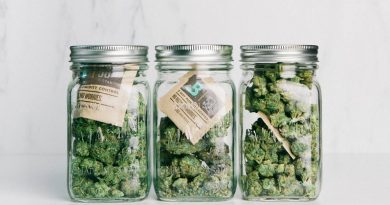Baby Boomers Continue to Increase Cannabis Use As They Age
A new study finds that Baby Boomers continue to increase their use of cannabis, with about 5% saying they used marijuana on a regular basis between 2016 and 2018.
The report, published in the Annals of Internal Medicine, found that use of cannabis continues to increase among the Baby Boomer generation, which includes those born between 1946 and 1964.
Study co-author Bill Jesdale told NBC News that the study’s findings reflect the changing attitudes of people around the country toward cannabis. Jesdale is an assistant professor of population and quantitative health science at the University of Massachusetts Medical School in Worchester/
“It seems that something has happened to the country as a whole,” he said, noting that use of cannabis increased both in states where it is legal and where it is not.
That change already has been reflected in national polls that have consistently found a majority of Americans support legalizing marijuana.
Men Are Driving The Increase in Baby Boomer Cannabis Use
Researchers looked at data from 2016, 2017 and 2018. The survey included responses from 171,507 people, all over the age of 55, from 19 states and two U.S. territories. The study found the biggest changes among men.
Men between the ages of 60 and 64 reported the highest rates of cannabis use – 12.% of those surveyed said they had used cannabis in the past 30 days in 2018. In 2016, that number was 8.9%.
Also, between 2016 and 2018, use doubled for men between the ages of 65 and 69, from 4.3% in 2016 to 8.2% in 2018. Rates of use also doubled for men between the ages of 70 and 74, from 3.2% to 6%.
Overall, about 6.7% of men said they used cannabis during the study’s three-year period, compared to 3.5% of women.
Why Baby Boomers Use Cannabis
Past studies have shown that Baby Boomers turn to recreational marijuana for the same reason that Millennials do: to reduce anxiety and to socialize.
They also prefer to use cannabis for pain rather than getting a prescription for pain medication. They voice a strong belief in the medical benefits of cannabis but say governments need to provide more information on how to attain a medical marijuana card.
They also reported using cannabis to treat arthritis, chronic pain, cancer, migraines and to manage weight loss. Also, 22% said they use cannabis in the morning to start their day.
Jesdale said there could be a variety of reasons why the survey found increased use.
“It could be there are more people using marijuana for medical conditions. It could be there are more using it for recreational uses,” he said. “It could be more people acknowledging use, in an environment when it’s easier to say that you use products when talking to someone from the government.”




